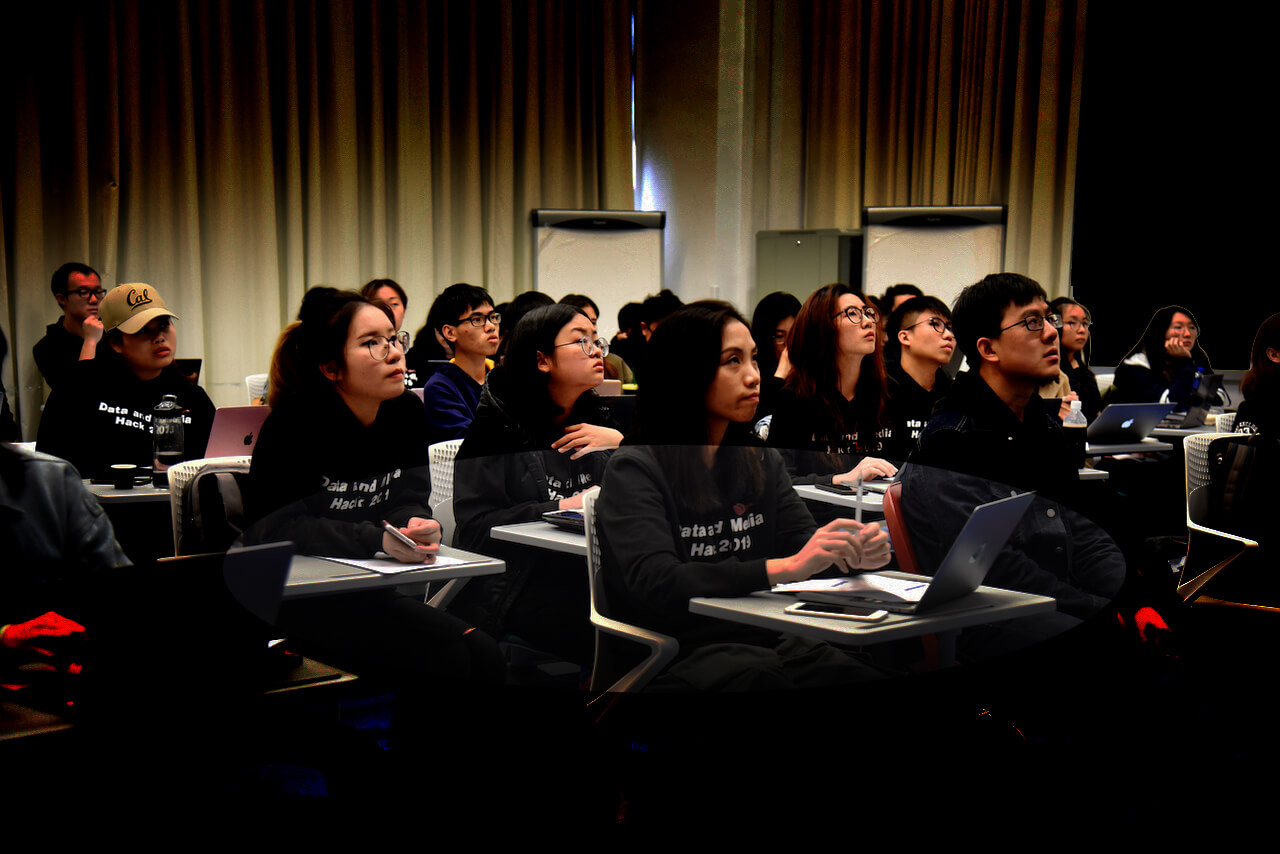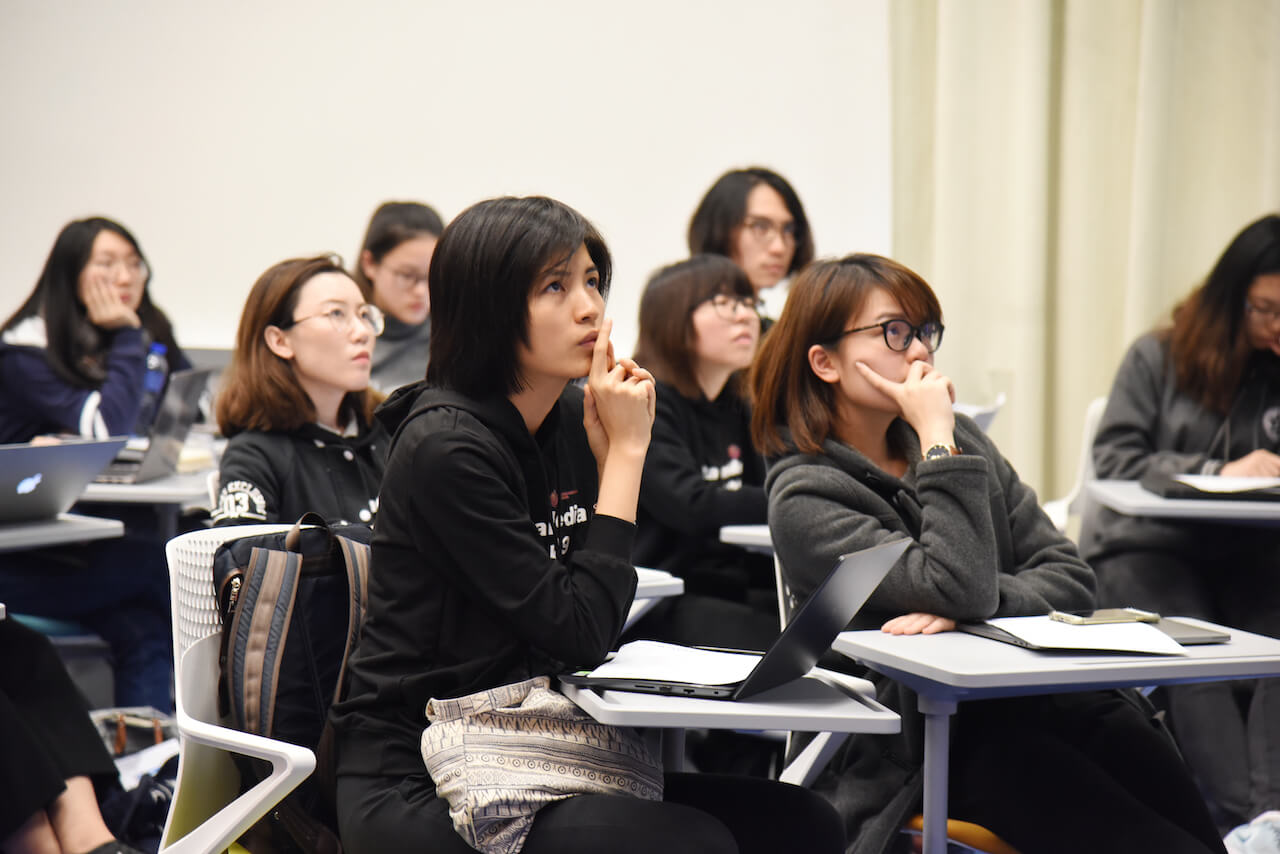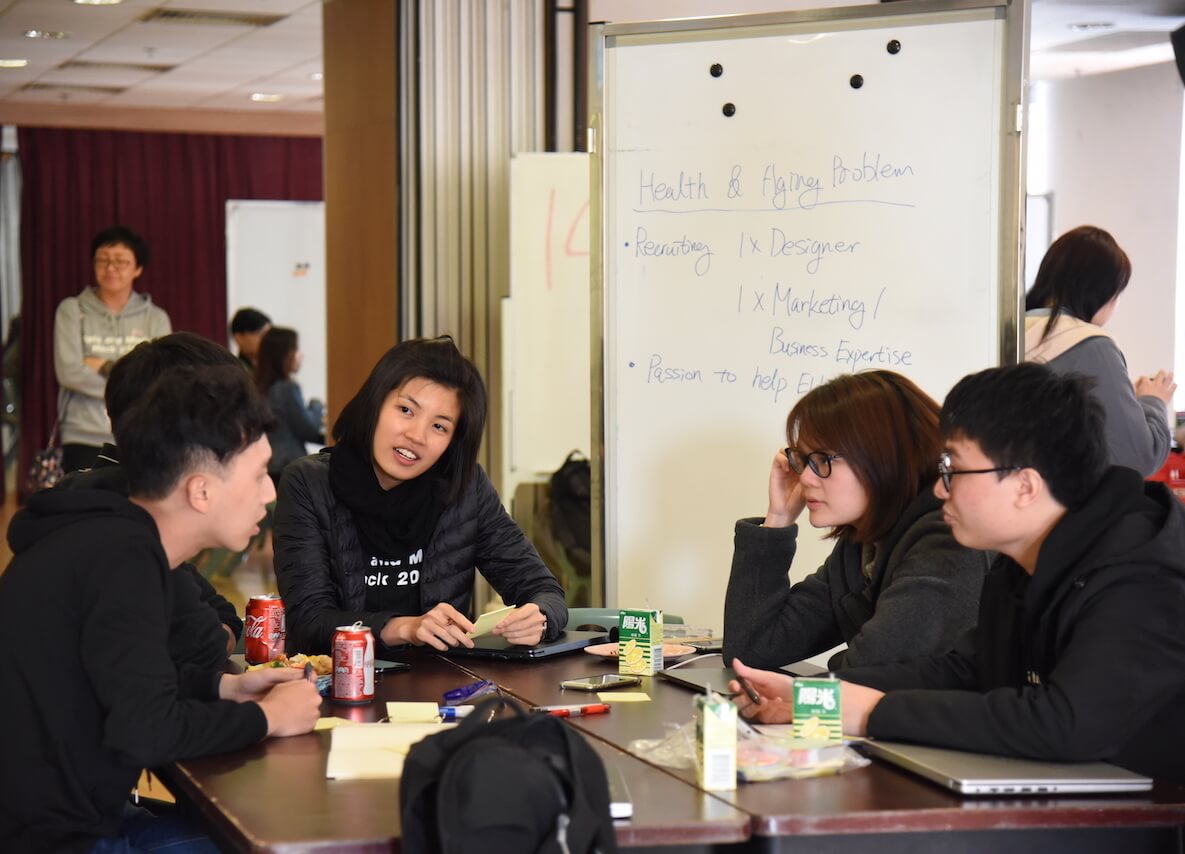
POSTGRADUATE PROGRAMMES
The MSc in Artificial Intelligence and Digital Media (AIDM) is Hong Kong’s first full-fledged interdisciplinary taught postgraduate programme focusing on the application of big data analytics and AI for media and communication. Our programme brings together cutting-edge research, industry expertise, and a global vision on innovation at the intersection of artificial intelligence and digital media. Our mission is to cultivate the next generation of interdisciplinary digital media talents for the AI and Digital Media era.
We believe that AI is more than a technological advancement; when combined with research in communication, it can serve the greater social good by advancing well-being, e-health, smart cities, cultural preservation, and cultural diversity. Our curriculum integrates theoretical foundations with practical, hands-on learning experiences in both AI and communication. We are committed to providing the best teaching and learning environment for our students, and equipping them with critical thinking skills, communication expertise, technical proficiency, and the adaptive mindset for their successful and fulfilling careers.
Our faculty consists of leading researchers and industry experts from both communication and computer science. Their diverse expertise ensures that your learning journey is rigorous and fully aligned with the dynamic demands of the digital media landscape. Our graduates have built rewarding careers in world-leading companies such as Tencent, ByteDance, Baidu, China Mobile, HSBC, Bank of China, ICBC, TVB, Phoenix TV, etc. Some of our alumni have also pursued their Ph.D. studies at prestigious institutions in Hong Kong and the United States.
We invite you to join our AIDM community, where you will explore new possibilities and make meaningful contributions in the fields of AI and Digital Media. We look forward to welcoming you to AIDM.
Dr. LAN Liang
Programme Director
Senior Lecturer
Department of Interactive Media
School of Communication
Dr. Jacky Chan
Associate Programme Director
Lecturer
Department of Computer Science

The new programme aims to provide students with cutting-edge interdisciplinary knowledge of and skills in AI and media communication needed for the computational and digital age. Students are expected to become proficient in essential aspects of data-driven research, story-telling, branding and promotion, audience engagement and editorial decision-making.
Grounded in an academic core of several theoretical and methodological courses, the Programme offers a wide range of elective courses focusing on knowledge and practice in media institutions and operations in the context of the digital transition. These combinations of courses have been chosen with the specific goal of nurturing high-quality, ethical professionals and managerial personnel in the media and communication industry.

The graduation requirement for all students is 30 units, consisting of 6 units of bridging courses, 12 units of core courses, and 12 units of elective courses of which a minimum of 9 units must be from this Programme.
An academic advisory system (led by the Programme Director) will be established to help students understand the structure of the programme at the beginning of the first semester.
The full-time mode
| Year | Semester | Units |
| Year 1 | 1st Semester | 15 |
| 2 bridging courses | ||
| 2 core courses | ||
| 1 elective course | ||
| 2nd semester | 15 | |
| 2 core courses | ||
| 3 elective courses | ||
| Total | 30 |
The part-time mode
| Year | Semester | Units |
| Year 1 | 1st Semester | 9 |
| 2 bridging courses | ||
| 1 core course | ||
| 2nd semester | 6 | |
| 1 core course | ||
| 1 elective course | ||
| Year 2 | 1st semester | 6 |
| 1 core course | ||
| 1 elective course | ||
| 2nd semester | 9 | |
| 1 core course | ||
| 2 elective courses | ||
| Total | 30 |
Transfer of units or course exemption may be granted to students only if they meet some stringent requirements set within the University framework. Students should seek the Programme’s advice on the studies prior to applying it. The application for transfer of units/course exemption should be submitted to the Programme and Academic Registry on or before the end of the first add/drop period of your first year of study. Students should allow ample time for the Programme to process the application which will be evaluated by the Admission Panel.
For a detailed study curriculum, please refer to the programme information at the website
| BRIDGING COURSES | |
|---|---|
| AIDM7320 | Basics in Media and Communication |
| AIDM7330 | Programming for Data Science |
| CORE COURSES | |
| AIDM7340 | AI for Digital Media |
| AIDM7350 | AI and Digital Media Workshop |
| AIDM7360 | Big Data Management and Analytics |
| AIDM7390 | Data Mining & Knowledge Discovery for Digital Media |
| ELECTIVE COURSES | |
| AIDM7010 | Media Psychology |
| AIDM7020 | AI and Big Data Applications in Financial Market Analytics |
| AIDM7040 | Generative AI for Digital Media |
| AIDM7380 | Recommender Systems for Digital Media |
| AIDM7400 | Data Analysis and Visualization Studio |
| AIDM7410 | Computational Journalism |
| AIDM7420 | News and Feature Writing for Digital Media |
| AIDM7450 | Dynamic Web & Mobile Programming for Digital Media |
| AIDM7460 | Digital Media Research Project |
| AIDM7470 | Big Data and Social Media Marketing |
| AIDM7620 | Social Media and Online Social Networks |
| AIDM7840 | Algorithmic Culture |
| AIDM7860 | Human-Computer Interaction and User Experience |
| AIDM7880 | AI for Social Good: Laws, Ethics, and Methods |
| COMM7020 | Approaches & Methods in Comm Research |
| COMM7660 | Statistical Analysis in Communication |
| COMP7045 | Natural Language Processing |
| COMP7810 | Business Intelligence |
| COMP7990 | Principles and Practices of Data Analytics |

Applicants should possess a bachelor’s degree with honours from a recognised university or institution.
Applicants should be able to communicate in English at an advanced level, possessing one or more of the following qualifications if they did not study in an English-speaking institution. The test result provided should be within two years from the date of issuance of the Admission Offer letter.
* Note: Test result provided should be within two years from the date of issuance of the Admission Offer letter. TOEFL iBT Home Edition or IELTS Indicator test is not accepted.
Tuition Fee
HK$180,000 (per year for one-year full time student)
HK$90,000 (per year for two-year part time student) (local Hong Kong students only)
Eligibility:
Full-time or part-time international TPG students who can enhance the diversity of the programme. Applicants are assessed on a broad range of criteria, including international exposure, cultural experiences, overseas education, work experience, special achievements, and unique talents.
No. of Recipients:
Max. of 2 per programme
Amount per Recipient:
Full tuition waiver
Application Method:
Application form for Diversity Scholarship: download here
Please submit the completed Diversity Scholarship application form to AIDM programme (aidm@hkbu.edu.hk) for consideration.
Please visit the website for details: https://sa.hkbu.edu.hk/en/sfa/scholarships/academic-scholarships/for-postgraduate-students.html#accordion-da98762116-item-e0f52c8c37
Eligibility:
Retired International and Mainland Olympians or equivalent level; and applications nominated by World Olympians Association, Champion Foundation (China) or other Olympian related organizations.
Please visit the website for details: https://ar.hkbu.edu.hk/tpg-admissions/hkbu-admission-scheme-for-olympians-for-admission-to-taught-postgraduate-programmes
1. Can I live on campus?
The student halls are not available to post-graduate students, but there is a private on-campus dorm called the NTT International House that some students like to stay in. Most students find private housing off campus .
2. What is Hong Kong like?
Hong Kong is a dynamic, international 24-hour city that is full of people, cultural events and food from all over the world. Cantonese is the main language but English is also widely used. Hong Kong is one of the safest cities in the world, is an excellent travel hub for exploring the rest of Asia and has a large variety of outdoor activities and tourist attractions. People love living in the city for its vibrancy and endless list of things to do.
3. Is a dissertation required?
No. We recommend disserations only for students interested in pursuing further studies.
4. Do I need to speak Chinese to enroll in your programme?
Not at all! The programme is taught 100 per cent in English. And if you want to learn Cantonese or Putonghua, there are many opportunities to study.
5. Can I work in Hong Kong on a student visa?
Students can work on campus up to 20 hours per week and are allowed to have short-term internships while studying. Students may also work in the summer and the Hong Kong government allows students to spend one year working in Hong Kong after graduation without a work visa. See government regulations here.
6. Does tuition include health insurance?
Yes. We have committed a substantial subsidy for all students of the progamme to enjoy the same privileges and services as those of UGC-funded programmes at the University Health Clinic.
Full-time or part-time international TPg students who can enhance the diversity of the programme. Applicants are assessed on a broad range of criteria, including international exposure, cultural experiences, overseas education, work experience, special achievements, and unique talents.
Selected Diversity Promotion recipients are entitled to a full tuition fee waiver of HK$180,000.
Please visit the website for details: https://sa.hkbu.edu.hk/en/sfa/scholarships/academic-scholarships/for-postgraduate-students.html#accordion-da98762116-item-e0f52c8c37
Please visit the website for details: https://ar.hkbu.edu.hk/tpg-admissions/hkbu-admission-scheme-for-olympians-for-admission-to-taught-postgraduate-programmes